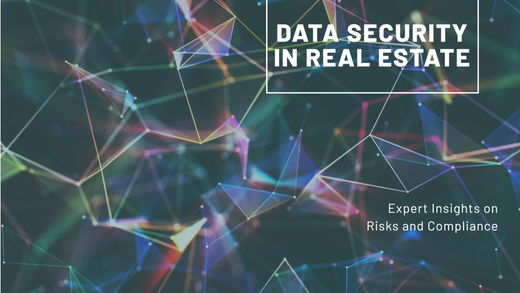In this exclusive interview with Jaap Mantel, VP of Sales at Data & More, we will discuss the critical world of data security in the real estate industry. Our expert shares his valuable insights on the most significant risks and the importance of complying with data protection regulations. Discover the role of data analysis and the essential steps real estate businesses must take to assess their data security risks and choose the right data security partner.
1.What are the most significant data security risks the real estate industry faces today?
Real estate companies manage various data types, including operational data, customer information, contracts, and more. Many contain personally identifiable information (PII), which must be stored securely to comply with privacy laws. Often, different teams within an organization may not know what data they have or where it is stored, leading to significant risks in compliance, security, data governance, and overall business operations.
2. Can you share real-life examples of data breaches in the real estate industry and their consequences?
A data breach can cost a real estate company millions, including:
- Consultancy fees in the hundreds of thousands
- Potential government fines
- Lawsuits from affected individuals
- Redirection of company resources from core projects to incident management
The average cost per data breach is around $6.94 million.
3. Are there any data protection regulations real estate businesses need to comply with?
Yes, real estate businesses must comply with numerous privacy and data protection laws. In Canada, there are around 11 privacy laws; the U.S. has even more. It’s crucial to stay informed about these regulations and industry-specific best practices.
4. What role does data analysis play in identifying and mitigating data security risks?
Data analysis helps identify, classify, and manage data by:
- Protecting sensitive information
- Ensuring data is stored properly
- Supporting data governance
- Providing insights for compliance, risk reduction, and AI readiness
5. What steps should real estate businesses take to assess their data security risks?
Start by partnering with a security expert to address the basics. You can also take advantage of our free data security scan to identify potential risks and understand your current data situation better.
6. What should real estate businesses look for when choosing a data security partner?
Look for a provider with a proven track record, expertise in your chosen systems, and a commitment to quality service.
7. Is data security a concern only for head offices, or do local offices need to worry too?
Primarily, data security is a head office concern, but if local offices manage their own data or have specific policies, they also need to consider data security.
8. How can real estate professionals integrate data security into their overall business strategy?
Data security should be a core component of your business strategy to enable data-driven decisions. Automating data processes helps ensure policies are consistently enforced.
9. What is one step a real estate business can take right now to improve its data security?
Schedule a free scan or proof of concept with Syphered.Tech to gain insights into your current data security posture.
Real estate businesses face various data security risks, including potential data breaches and the challenge of complying with numerous privacy laws. To mitigate these risks, it's crucial to partner with security experts, stay informed about industry-specific best practices, and integrate data security into your overall business strategy. Leveraging data analysis can help identify, classify, and manage data while providing ongoing insights for compliance and risk reduction. By taking proactive steps, such as signing up for a free assessment or reaching out to learn more, real estate businesses can improve their data security posture and make informed decisions to protect their sensitive information.

